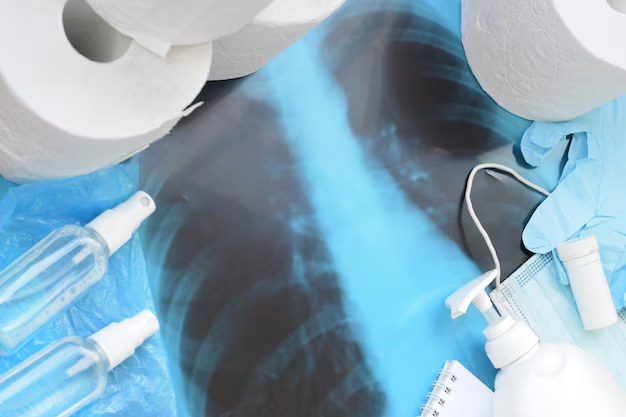Your Guide to What Is Hypertension Of The Lungs
What You Get:
Free Guide
Free, helpful information about HyperTension FAQ and related What Is Hypertension Of The Lungs topics.
Helpful Information
Get clear and easy-to-understand details about What Is Hypertension Of The Lungs topics and resources.
Personalized Offers
Answer a few optional questions to receive offers or information related to HyperTension FAQ. The survey is optional and not required to access your free guide.
Understanding Pulmonary Hypertension: What It Means for Your Health
When you think about hypertension, you might immediately associate it with high blood pressure and cardiovascular issues. However, pulmonary hypertension is a related yet distinct condition that specifically affects the arteries of the lungs and the right side of the heart. It’s crucial to understand this condition, as it requires careful management and can lead to serious health issues if left untreated.
What Is Pulmonary Hypertension?
Pulmonary hypertension is a type of high blood pressure that targets the arteries in your lungs. In this condition, the blood vessels that carry blood from the heart to the lungs become narrowed, blocked, or destroyed, resulting in increased pressure. This makes the heart work harder, which can lead to heart enlargement, weakness, and ultimately heart failure.
Symptoms to Watch For
The symptoms of pulmonary hypertension often mimic those of other heart and lung conditions, making it difficult to diagnose. Here are the key symptoms:
- Shortness of breath
- Fatigue
- Chest pain
- Racing heartbeat
- Swelling in the ankles and legs
- Dizziness or fainting spells
Early detection is vital to managing the disease effectively. If you experience these symptoms, it’s important to consult a healthcare professional for a comprehensive evaluation.
Causes and Risk Factors
Pulmonary hypertension can occur at any age, though certain factors increase the risk:
- Inherited genetic mutations can lead to the condition.
- Other diseases, such as chronic lung disease or connective tissue disorders like lupus.
- Use of certain medications or illegal drugs.
Understanding the root cause is critical in tailoring the appropriate treatment plan, as it can stem from various underlying conditions.
Managing Pulmonary Hypertension
Management often centers around medication, lifestyle changes, and sometimes surgical interventions. Here are some focus areas:
- Medications such as blood vessel dilators and anticoagulants help manage symptoms.
- Implementing a heart-healthy lifestyle: balanced diet, routine exercise, and quitting smoking.
- Oxygen therapy and in severe cases, lung or heart-lung transplant can be considered.
Since the treatments can be costly, various financial aids and resources are available to support patients in managing their healthcare expenses effectively.
Exploring Financial Aid for Medical Care
Given the chronic and sometimes debilitating nature of pulmonary hypertension, the financial implications can be significant. However, there are several avenues of assistance to explore:
- Government Aid Programs: Medicaid and Medicare offer coverage for those who qualify, often relieving the financial burden.
- Patient Assistance Programs: Pharmaceutical companies sometimes offer cost-covering initiatives for necessary medications.
- Health Savings Accounts (HSAs): These can be a tax-efficient way to save for ongoing medical expenses.
Education and awareness about these resources can potentially alleviate financial stress, allowing patients and families to prioritize health over costs.
Financial and Educational Resources 📋
- 📜 Medicaid and Medicare: Federal programs offering healthcare to eligible individuals based on income and age.
- 💊 Pharmaceutical Assistance Programs: Check with your medication’s manufacturer for specific help.
- 🌿 Tax Advantaged Accounts: Consider HSAs and FSAs for medical savings.
- 🎓 Educational Grants: Especially for younger patients, these can offset medical education impacts.
- 💳 Credit Card Solutions: Health-targeted credit services offering manageable plans.
With an informed approach, managing pulmonary hypertension doesn’t have to be overwhelming. By leveraging medical, financial, and educational resources, individuals can achieve better health outcomes and mitigate the disease's impact on life quality.
What You Get:
Free HyperTension FAQ Guide
Free, helpful information about What Is Hypertension Of The Lungs and related resources.

Helpful Information
Get clear, easy-to-understand details about What Is Hypertension Of The Lungs topics.

Optional Personalized Offers
Answer a few optional questions to see offers or information related to HyperTension FAQ. Participation is not required to get your free guide.


Discover More
- a 66 Year Old Female With a History Of Hypertension
- Are Eggs Bad For Hypertension
- Are Eggs Good For Hypertension
- Are Endocrine Disorders Causing Hypertension Rare
- Can Adderall Cause Hypertension
- Can Alcohol Cause Hypertension
- Can Allergies Cause Hypertension
- Can Anemci People Get Hypertension
- Can Anemia Cause Hypertension
- Can Antibiotics Cause Hypertension
